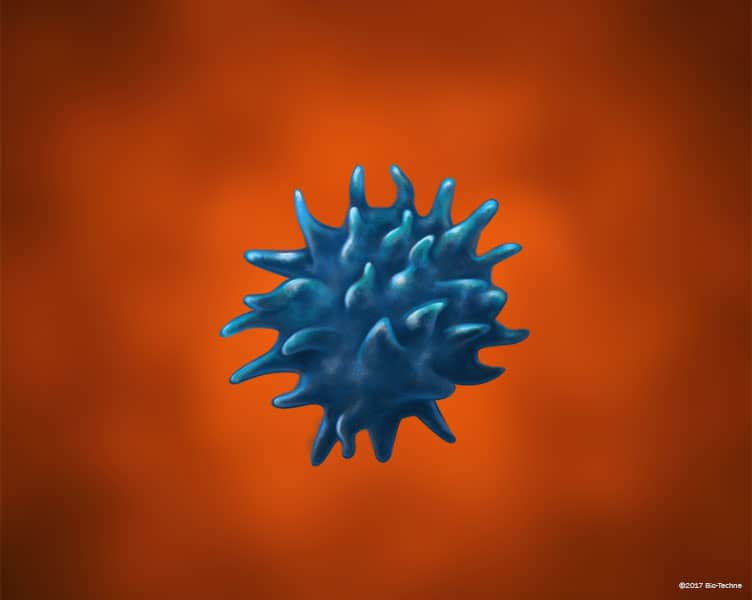Classical Dendritic Cell - Common Markers
Click on one of the dendritic cell types shown in the buttons below to see the human and/or mouse markers that are commonly used to identify the different dendritic cell subsets.

Overview
Classical dendritic cells (cDCs) includes all dendritic cells other than plasmacytoid and inflammatory dendritic cells. In mice, there are two subsets of lymphoid tissue-resident cDCs that have been characterized, CD8 alpha+ cDCs and CD11b+ cDCs. These two subsets differ both phenotypically and functionally. In addition to these, there have been three subsets of nonlymphoid tissue/migratory cDCs described in mice including CD103+CD11b- cDCs, CD103-CD11b+ cDCs, and intestinal CD103+CD11b+ cDCs. Lymphoid tissue CD8 alpha+ cDCs and non-lymphoid tissue/migratory CD103+CD11b- cDCs are functionally similar in that they both have a superior ability to activate CD8+ T cells and preferentially prime Th1 and cytotoxic T cell responses. Similarly, lymphoid tissue and non-lymphoid tissue CD11b+ cDCs are functionally similar in that they are more proficient at activating CD4+ T cells and promoting Th2- or Th17-mediated immune responses. Each of these subsets can be identified by flow cytometry based on the expression of a specific group of cell surface markers. In humans, two subsets of cDCs have been identified, CD1c/BDCA-1+ cDCs and CD141/BDCA-3/Thrombomodulin+ cDCs. Although both subsets lack expression of CD8 alpha, transcriptome analysis showed that human CD141/BDCA-3/Thrombomodulin+ cDCs are related to mouse CD8 alpha+ cDCs, while CD1c/BDCA-1+ cDCs are related to mouse CD11b+ cDCs. Functionally, CD141/BDCA-3/Thrombomodulin+ cDCs are also similar to mouse CD8 alpha+ cDCs in that they preferentially activate CD8+ T cells and prime Th1 responses. In contrast, human CD1c/BDCA-1+ cDCs are more proficient at cross-presenting antigens to CD4+ T cells, suggesting that they are functionally equivalent to mouse CD11b+ cDCs. To view a more specific listing of the positive and negative markers associated with different human and mouse classical dendritic cell subsets, go to the Human or Mouse Tissue-specific Classical Dendritic Cell Subsets cell marker pages.


